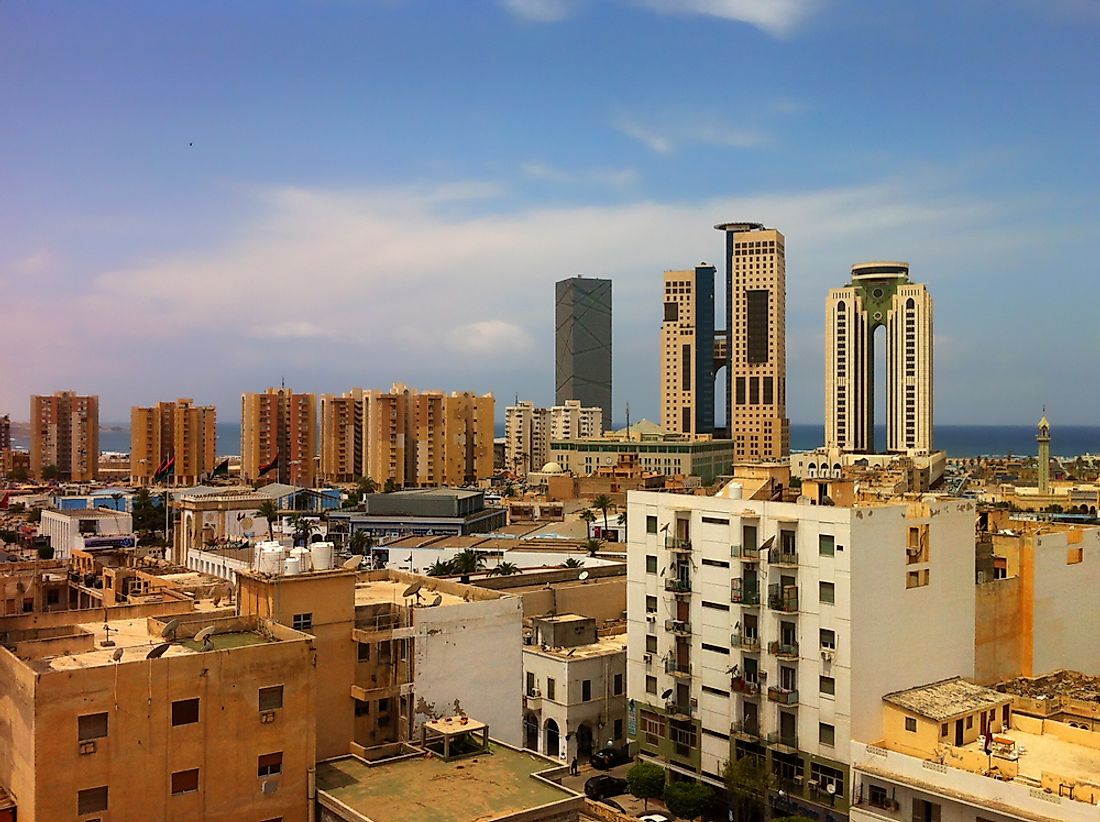What Is The Capital Of Libya?

Libya is a North African nation that occupies a region of about 679,363 square miles and the estimates of 2018 indicate that the country was home to roughly 7,200,000 people. The country is bordered by Algeria, Chad, Egypt, Niger, Sudan, and Tunisia as well as the Mediterranean Sea to the north. The most important city in Libya is the capital which also has a higher population than any other city in the nation. Tripoli was initially named Oea in the past and together with two other cities formed a region that was referred to as Tripolitania. Tripoli is the third oldest town in Africa's northern region.
History of Tripoli
Tripoli was initially a Phoenician city that was established in the 7th century BCE. Several reasons have been put forward to explain why the Phoenicians chose its location with one of the most popular being the fact that it has a natural harbor. Trade was essential to the Phoenicians, and the presence of a harbor would have been vital to them. After a long period of Phoenician rule, the Greeks of Cyrenaica took control of the city. The Carthaginians also ruled the city before it fell under the control of the Romans. The name Tripoli has origins traced to the period when it was under the Roman rule who coined the term Tripolitania in reference to the three cities they controlled in that area. Despite the long period of Roman rule, very few remnants of that period remain such as the Arch of Marcus Aurelius. A reason for the few Roman relics is the continuous habitation which caused the residents to reuse the materials from old buildings to create new ones. After the Roman Empire collapsed, the economic fortunes of the region declined significantly. Tripoli would later fall under the control of the Muslims around 643 CE. Various Islamic dynasties would trade control of Tripoli with notable examples being the Fatimids and the Muhallabids. Tripoli would later fall to the Spanish then later to the Maltese Knights. The rule of the Maltese knights ended after the Ottomans besieged the city and took control. After Libya attained its independence in 1951, Tripoli was officially made the capital city.
Economic Significance of Tripoli
Due to its location and status as Libya's capital, Tripoli plays a vital role in the nation's economy. The leading industries in Libya that are centered in Tripoli are finance, banking, and communication. These industries are the bedrock of Tripoli's economy with several companies in each sector having their headquarters in the city. Manufacturing also plays a vital role in the city's economy with the primary products being construction material, tobacco products, and processed foods. Sanctions were placed on Libya which significantly affected the economy of Tripoli and after they were lifted a large number of international investors came into the city. Tripoli also experienced an increase in the number of tourists after the sanctions were lifted which contributed to the growth of the city's hotel industry.
Education in Tripoli
Tripoli is one of the leading educational centers in Libya due to the presence of universities such as the University of Tripoli which offers the citizens education for free. Apart from major universities, Tripoli has a large number of international schools such as the Tripoli World Academy and the American School of Tripoli.
Current State of Affairs
In 2011, Ghaddafi was overthrown by the NATO-backed forces, and seven years later the country has not known peace. The country is heavily divided with the UN-backed administration in Tripoli, while another administration of rebels controlling the eastern part. There are also numerous armed groups with widespread human trafficking in the country.











